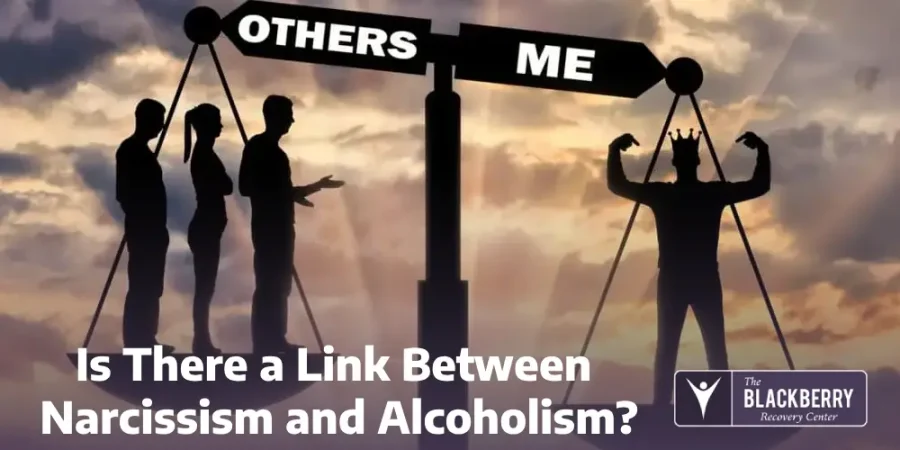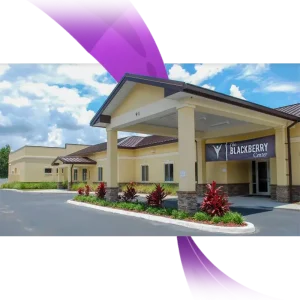Narcissistic personality disorder (NPD) is a diagnosable mental disorder in which people have an inflated ego, unwarranted feelings of grandiosity and importance, a need for excessive attention, and a lack of empathy for others. For individuals with narcissists in their personal life, this can be extremely difficult and emotionally draining. The situation can become much worse when substance abuse is involved, especially when dealing with an alcoholic narcissist.
Narcissism involves difficulty accepting fault for one’s mistakes. People with narcissism usually have incorrect perceptions about their life and what people think of them. They may believe that only their version of reality is accurate and are often unconcerned with the damage that their arrogant and manipulative behavior does to other people. When narcissism is combined with the cravings and impulses of alcoholism, this behavior only worsens.
Is There a Link Between Narcissism and Alcoholism?

Is There a Link Between Narcissism and Alcoholism?
While alcoholism is an addiction and narcissism is a personality disorder, the two share many characteristics that may cause trouble in their personal, social, and work lives. Alcoholism is more than just occasionally drinking too much and causing a scene. Alcoholism is an obsession with alcohol. It’s a disease where the person suffering lacks the ability to stop once they have started.
There is evidence of a link between narcissism and addiction, but not all narcissists are addicts. Narcissistic personality disorder is just one of several personality disorders that can be dual diagnosed with alcoholism. However, there is some evidence that having narcissistic personality disorder can make you more vulnerable to alcohol abuse, according to a study from the National Institute of Health.
Maintaining relationships and careers can be challenging when someone has either narcissism or alcoholism, because the two conditions often cause arrogance, manipulation, belligerent behavior, and lack of empathy. When somebody is dealing with both narcissism and alcoholism, it can become difficult to even convince them that they have an issue.
In fact, an alcoholic narcissist often can’t see things any way other than their own–this is where narcissistic personality disorder can come into play. Even when important parts of their life are suffering due to their decisions, in the co-occurrence of alcoholism and narcissistic personality disorder, the individual believes that everyone else is wrong.
Living With an Alcoholic Narcissist
Alcoholism and mental health conditions can be a sensitive subject. A person suffering from narcissism and alcoholism very likely has fragile self-esteem, and it can be difficult for them to even admit that they have a problem. And sadly, addiction recovery can be particularly hard for them. If they relapse, they may feel like a failure and can be quick to blame others.
Everyone has a reason for the way they act, and an alcoholic narcissist might tell you a perfectly good reason for why they should drink, whether or not those reasons are justifiable. They might view their problem as a personal shortcoming or a failure that they are embarrassed to open up about.
If someone you know exhibits destructive, selfish behavior—and won’t be held accountable for it due to their drinking—it can be hard to decipher if you’re dealing with an alcoholic or a narcissist. After all, this behavior seems to fit the bill for both conditions. Alcoholic narcissists’ symptoms often include:
- Denial
- Lack of self-examination
- Refusal to take responsibility
- Entitlement
- Self-destructiveness
- Behavior is at others’ expense
- Behavior can switch rapidly
- Superficial relationships
- Manipulation of others
- Self-absorption
The good news is that both narcissistic personality disorder and alcoholism are very treatable. Alcoholic narcissists tend to refuse help because they are entirely convinced that they are in the right and entitled to do what they want. For this reason, to effectively help your loved one, you may need to consult an interventionist to have a better chance of convincing them to get treatment.
Dual Diagnosis Treatment for Narcissism and Alcoholism

Dual Diagnosis Treatment for Narcissism and Alcoholism
Diagnosing co-occurring disorders can be difficult because the two conditions often affect each other and have overlapping symptoms. With dual diagnosis patients, it is always vital to obtain treatment for both disorders at the same time. Treating alcohol use disorder without addressing the narcissism or other mental health issues that underlie substance abuse will increase the chances of relapse and the need for more professional treatment. For these reasons, alcoholic narcissists need dual diagnosis care.
A comprehensive recovery plan is the safest and most effective way to overcome a co-occurring disorder. These plans incorporate various therapies and aftercare programs that address both alcohol abuse and a mental health condition.
Detoxification is usually the first phase of a comprehensive treatment plan. During this stage, alcohol is removed entirely from the body. Once detox is complete, a person will be able to enter an inpatient or outpatient treatment program to continue their recovery journey.
Inpatient rehab takes place in a residential facility where 24/7 care is provided. This type of treatment is well-suited for individuals who have struggled with their co-occurring disorders while dealing with problems at work or home. Inpatient facilities offer therapy sessions, support groups and medication-based therapy in a safe, supportive environment, allowing individuals to focus on their recovery without outside stress.
Outpatient rehab allows patients to recover from a co-occurring disorder while still attending to daily personal and professional responsibilities at home. An individual in outpatient rehab will learn how to cope with the mental health struggles that arise in daily life and apply what they’ve learned to everyday situations with the continued support of medical professionals.
If you are in a relationship with an alcoholic narcissist or have one in your family, you already know how challenging it can be to deal with them. Because of their lack of self-accountability, choosing the right rehab program is an important factor in maintaining a long-term recovery.
Getting Help For Alcoholic Narcissists
If you feel like you or someone you care about might be showing signs of being an alcoholic narcissist, there is hope, and there is no reason to be ashamed. Alcoholism is a very serious condition, and without treatment, it can lead to homelessness, failed relationships, and even early death.
At the Blackberry Center, our dual diagnosis program is tailored to each individual to treat their unique circumstances and symptoms. We specialize in guiding patients through the process of recovery step by step. From the very first day of alcohol detox and all the way through the discharge process and beyond, you will be able to tackle the causes of addiction head on with full support along the way.
The first step to recovery is to reach out. If you are worried about yourself or a loved one, you can get in contact with one of our addiction specialists by phone at (813) 908-4199 or through our confidential contact form.
Video
The Drunk Narcissist
Podcast
Our Healing Journey From Narcissistic Abuse – Alcohol
Interview with Blake about her Ex and Alcohol Abuse
FAQ
- What are the signs of an alcoholic narcissist?
Common signs include excessive drinking, manipulative behavior, lack of empathy, and an inflated sense of self-importance. - How does alcoholism affect narcissistic tendencies?
Alcohol can intensify narcissistic traits, worsening emotional outbursts, denial, and manipulative behavior. - What challenges might someone face living with an alcoholic narcissist?
Challenges include emotional manipulation, verbal abuse, trust issues, and difficulty addressing the addiction. - How can you help an alcoholic narcissist seek treatment?
Encourage open communication, avoid enabling behavior, and seek professional intervention or therapy. - What support is available for individuals living with an alcoholic narcissist?
Support groups, counseling, and resources like Al-Anon can help individuals cope with the stress and challenges.






